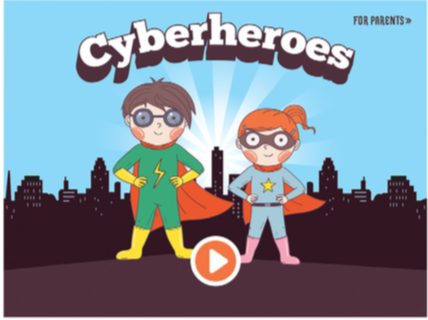Very young children are increasingly able to access mobile devices and the Internet. It is very far from uncommon that children under 4 would be accessing the internet this way everyday. While there have been efforts to educate older children about the dangers of the internet and their privacy there has not been as much effort dedicated to young children. Leah Zhang-Kennedy, Yomna Abdelaziz, and Sonia Chiasson at Carelton University designed an educational interactive ebook called ‘Cyberheroes’ to increase children’s online privacy knowledge and behaviour as well as to support child–parent privacy-related discussions. They then evaluated its effectiveness with a user study with 22 children (aged 7 to 9) and 22 parents. They evaluated the usability of the ebook and assessed the privacy knowledge and behaviour with the children before and after they read the book and then again one week later. Cyberheroes considerably increased online privacy knowledge and reported privacy behaviour of the children. Further the ebook readers also showed greater knowledge retention after a week when compared to a group that only read the text. Cyberheroes also facilitated longer child–parent privacy discussions when they read the book together co-reading than the traditional text. Both the children and parents found Cyberheroes engaging, easy to use, and easy to learn.
Ebooks appear to provide an excellent tool for educating and stoking discussion between parents and children to help them know more and be safer online.
Cite:
Zhang-Kennedy, L., Abdelaziz, Y., & Chiasson, S. (2017). Cyberheroes: The design and evaluation of an interactive ebook to educate children about online privacy. International Journal of Child-Computer Interaction, 13, 10-18.
Link:
https://www.sciencedirect.com/science/article/pii/S2212868916300630



